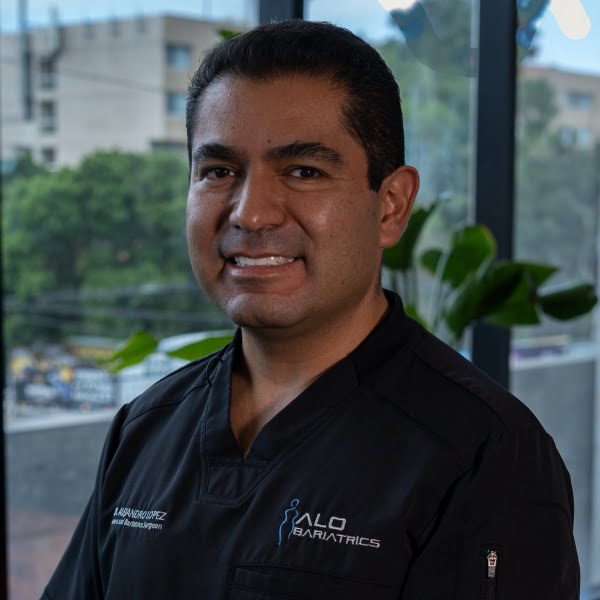Does Bariatric Surgery Leave Scars? — Ask a Bariatric Surgeon
Getting a life-changing procedure like bariatric surgery can be stressful, especially if you’re worried about scarring. People who struggle with weight issues often also worry about how they look, and having a scar might make them feel more uncomfortable.
The good news is that you can reduce the appearance of scars by choosing a skilled surgeon, deciding on the type of surgery you have (gastric sleeve or gastric bypass), and taking good care of your wound after the procedure. Following the advice of your care team at ALO Bariatrics can be reassuring for those thinking about bariatric surgery.
Read more about bariatric surgery scars and how to prevent them from affecting you. Don’t let something like a potential scar deter you from exploring this life-changing opportunity.
Will You Have Scars After Bariatric Surgery?
Every patient heals differently after surgery, so it’s difficult to know exactly what kind of scarring you’ll have or if there will be any scarring at all. Here are some important factors that can affect how scars develop:
- Size and location of the incision: The placement of the incision and its size can affect how well the cut will heal and how noticeable a scar is.
- Surgical technique: Different surgery methods can affect how scars develop.
- Individual healing factors: Each person’s body has a unique way of healing, and some people may be more prone to scarring based on their genetics.
- Wound care: Taking care of the incision exactly how your surgeons describe can help prevent scarring.
- Infection: Infection can cause an increase in inflammation, leading to more scarring.
- Tension on the incision: Making sure the incision isn’t getting stretched or pulled will allow it to heal with less inflammation.
- Following postoperative instructions: Carefully listening to all of the post-operative instructions is an essential aspect of the healing process.
Read more to learn about the techniques ALO Bariatric uses to minimize scarring for our patients.
What Causes Scarring?
Scarring is a normal part of the body’s healing process. The skin works to repair itself by filling in holes or gaps in the tissue damaged from an incision. When a cut is made to the skin, the part that’s been divided must heal using fibrosis or scarring to close off the internal components of the body from things like bacteria that live in the environment. Scarring is the natural way for the body to protect itself and strengthen the area.
It Can Depend on the Procedure
The likelihood of developing a scar is related to the type of procedure you have. Some surgeries carry a high risk of scarring, while with others, you may not even be able to tell if surgery occurred. Generally speaking, the larger the incision, the higher the likelihood of developing a scar. That’s one of the many reasons why ALO Bariatrics uses a single-incision laparoscopic approach to complete most of our bariatric procedures.
In rare cases, an open bariatric surgery involves a bigger and longer incision, making it more prone to infections and scarring. A multiport laparoscopic procedure, which is a less invasive technique, uses several small, keyhole-like entry points into the abdomen. The more incisions you have, the higher the risk of infections, poor healing, and the opportunity for scars to develop. The technique that will leave the least amount of scarring and has the lowest risk of developing an infection is a single-incision approach.
Will Scarring Heal?
Over time, scars can become smaller and harder to see, but they will never completely go away. In some cases, a scar can fade away so much that it’s barely even noticeable. While a scar isn’t completely avoidable, you can take actions to minimize the development and appearance, starting with choosing a reputable surgeon from ALO Bariatrics.
Minimizing Scarring Through Minimally Invasive Techniques
Whether you choose gastric bypass or gastric sleeve, ask your surgeon which minimally invasive technique may work best for you. The technique with the lowest chance of causing noticeable scarring is a single-incision laparoscopic surgical approach. ALO Bariatrics prefers this technique due to its many benefits. Only one small incision is needed to complete the surgery, placed near the belly button, where natural folds in the skin can hide any scar that may develop. The SILS approach has a lower rate of infection, quicker recovery, and the smallest chance of having a long-term, visible scar. ALO Bariatric surgeons have performed thousands of SILS surgeries and are ready to help you reach your weight loss goals.
Other Methods of Minimizing Scarring from Bariatric Surgery
The best time to treat your potential scars is to prevent them from occurring in the first place. Besides using the SILS approach and trusting experienced surgeons for your procedure, there are other measures you can take to help decrease the chances of noticeable scarring developing. These mainly include taking care of your incision site and making sure the area doesn’t become infected. If you do end up with a scar that concerns you, there are treatment options to help make it smaller or more manageable. ALO Bariatrics can explain options to minimize your scar in great detail with a consultation.
Pre-Surgery Best Practices
Preparing for your new life begins well before you step into the operating room. Taking care of yourself in advance of a bariatric surgery can significantly impact your recovery. Your care team from ALO Bariatrics will be with you every step of your journey, guiding you to a successful operation and recovery.
Before your surgery, it’s important to start creating healthy habits, so they’re easier to resume while you’re recovering. Meeting with a dietician and learning what to eat, when to eat, and how to prepare your food will help you be healthier before you go into surgery. Unhealthy eating habits after surgery could cause inflammation and stress to your wound, increasing the chances of scarring.
Starting a new exercise routine is hard, especially after having surgery. It’s good to start an exercise routine beforehand, making it easier to resume after the procedure. Exercise can speed up your recovery and has many before-and-after benefits. Talk with your ALO Bariatrics specialists about exercises that may help decrease the chances of you ending up with visible scars after surgery.
Post-Surgery Care
After your surgery, your body begins to heal right away. You must begin your recovery by taking care of any wounds you have so the skin heals, and any scarring that may develop is minimal.
At ALO Bariatrics, we understand that your recovery process is just as important as the procedure itself. You’ll work with a team of highly skilled providers to develop a comprehensive post-surgical treatment plan that addresses your concerns and fits your lifestyle. Some of the key elements of your post-surgical recovery include the following:
- Add nutritional supplements: After surgery, you’ll work with your dietician to make sure you are getting enough nutrients through your food and supplements. Some surgeries can affect absorption, so taking supplements may become part of your everyday routine and improve healing.
- Protection from the sun: The sun can change the color of the area of scar tissue. Protecting the incision site from sun rays can help prevent discolored scars.
- Exercise: When you exercise, your circulation improves. Maintaining good circulation helps tissues heal properly.
- Stick to your diet: Sticking with your diet will help your skin stay together and heal properly. If you eat in excess and the skin stretches because you’re full, the tissue can become damaged again, causing scarring.
- Get rest and hydrate: While you recover from your surgery, it’s important to exercise, but make sure you don’t overdo it and perform motions that pull your skin apart. Staying hydrated can also promote good circulation, which is needed to heal properly.
- Use proper skin care: Your surgeon will suggest some skin care products for you to use to help protect the incision and minimize scarring. Vitamin E and Vaseline are examples of products that protect the scar and help it heal.
What Bariatric Surgery Scars Look Like Depending on Surgery
The scars from bariatric surgery depend on the patient and the technique used to perform the surgery. With a minimally invasive procedure such as the SILS approach, there may not be any signs you’ve ever had surgery. Whereas, if an open procedure is used, a scar could be up to ten inches long and be situated between the sternum and belly button. A multiport technique will leave four to five small, circular scars in different locations across the abdomen. Your surgeon will explain which approach will be best for your unique procedure.
Should You Be Worried About Scarring After Bariatric Surgery?
You shouldn’t be worried about scarring after bariatric surgery, that is, if you choose the right surgeon and follow their advice. Having bariatric surgery done in the right hands can mean a scar that’s barely noticeable or not noticeable at all.
Probably the most important factor contributing to scar development is the skill of the surgeon you choose and their experience with the procedure. Skilled surgeons will incorporate any incision into the natural creases and folds of the body so that if a scar develops — it’s camouflaged with the body. An inexperienced surgeon with poor technique is more prone to make an error and an incision that’s bigger than necessary. A careless surgeon may also cut corners and not take all precautions needed to prevent infection.
ALO Bariatrics is one of the most popular destinations for bariatric surgery in Mexico. If you want your procedure done by the best in healthcare, and minimal risk of developing scars, reach out today and schedule a consultation: (619) 653-6739.


Dr. Alejandro Lopez, the owner and lead bariatric surgeon at ALO Bariatrics, is a Fellow at the American College of Surgeons and is accredited with the American Society for Metabolic and Bariatric Surgery. He is also a certified bariatric surgeon by the Mexican College of Surgery for Obesity and Metabolic Diseases. He is one of two surgeons in Tijuana and one out of five to ten in all of Mexico who is able to provide robotic surgery.


